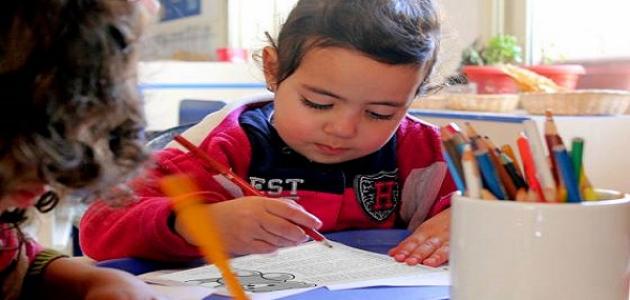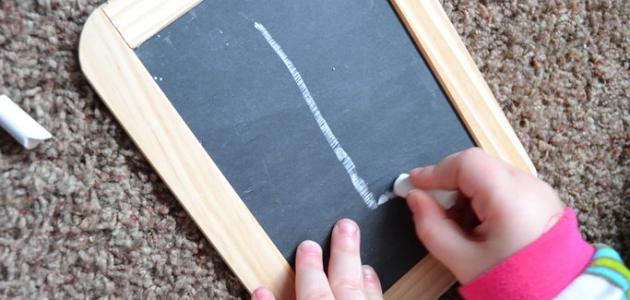studying
Many parents try to continue their children's studies in the school stage, especially elementary school because it is the foundation stage, so they resort to helping them study. Studying is defined as a type of intended learning, which aims to understand the study material, then memorize it to retrieve it with high efficiency. Studying is based on a set of methods and methods that are used to prepare lessons and assignments in addition to preparing for exams, but some find it difficult to convince the child to study, especially with the presence of many distractions in our time, so they follow methods that may only gain more stubbornness and distance from the study, so It is necessary to know the correct methods that are used with children to encourage them to study.
Helping children to study
Children can be helped in studying, overcoming their reluctance to study, and raising their performance and academic achievement, by organizing a group of children’s study habits, which is a daily behavior used in study, based on a number of different methods, strategies and methods, which are used in daily study or study. For the exam, the following is a set of tips that help children study:
Psychological means
The psychological factor plays a pivotal role in the study process, so it is necessary to pay attention to a set of points that parents can follow to improve their children’s study:
- Encouragement and support: Children are affected by expressions of encouragement for any efforts they make in studying, which makes them want to regularly do that thing for which they received praise. Verbal support can also be provided to them in subjects that they find difficult to study, such as explaining that it is difficult but that they can achieve success in it.
- Minimize criticism: Parents express their distress when they find their children failing in their studies, and this appears either verbally or through facial expressions. All of these criticisms negatively affect the child, and lead to feelings of frustration and lack of interest in studying. Instead of criticism, it is preferable to make suggestions to improve studying.
- Provide incentives: Studying is usually not a fun thing for children, so if a reward is set for them related to their academic achievement, such as watching TV, getting a gift, or playing a game they love, this motivates them and helps them adhere to the duties required of them to accomplish them.
- Set a routine: By setting a specific time for studying, in which the child will have rested from school, so that he turns off the TV and creates an atmosphere of calm in which each member of the family exercises a specific educational activity such as reading. A group of places to study can be identified so that the child becomes associated with a study routine, making it easier for him to study.
- Understand the importance of rest: Children cannot study for more than 10-15 minutes - it may vary according to age - after which they lose their focus. They must be given a break to wander around, and some food and drink should be provided to them.
Teaching Aids
Parents practice the study process by memorizing information and repeating it several times in order to memorize it. This method is often ineffective, and may lead to memorizing information without understanding it, or forgetting it after using it. This method also causes rapid boredom in children, and reduces their desire to study. Therefore, it is necessary to follow an entertaining method that motivates the child to study. The types of children differ in terms of the method that motivates them to study. Some of them learn auditory, visually, or kinesthetically, and all these methods can be combined together.
Read also:Teaching Arabic letters to children- auditory learning When a child is better able to acquire and understand information through listening, he or she has listening tendencies. Some methods can be followed to help and motivate him to study, including:
- Register the child to read and listen to it with his parents for review.
- Use songs, rhymes and linking words to help memorize.
- Finding recordings of approved textbooks, so that he can listen to them.
- Teaching him how to talk to himself as a way to solve issues in different fields.
- visual learning Some children are motivated to study when adding more pictures, colors and different visual elements. These methods can be used to encourage the child to study:
- Use different colors to take notes, or to write down key concepts, and color important sentences.
- Draw his attention to the pictures presented in the book before starting to read it, and add pictures to his imagination. In order to help him understand the information and link it to these pictures.
- Making a study wall, so that he draws a poster every week of what he wants to learn and hangs it on that wall.
- Making educational cards that show mathematical facts or key vocabulary.
- Watching a children's documentary that contains the information that the child wants to learn.
- kinesthetic learning Some children are characterized by a lot of movement, and they are the type that loves learning through movement, and this can be achieved through:
- Learn math like addition and subtraction using hands.
- Using cubes for letters, so the child arranges them and learns the alphabet and spelling through them.
- Not restricting the child to sitting down to study, and allowing him to study while lying down or while moving around the room.
- Reading by converting the paragraphs into a kind of recitation or a scene from a play.
- Helping him study science by making various projects.
Helping children during exams
Most children do not like exams and avoid preparing for them. For fear of it, it is the parents' turn to help their children prepare for the exam. Here are some tips that parents can follow at the time of the exam:
Read also:Teaching children numbers- Explain to the child that the exam is a way to assess the student, and a way to determine if the student needs more help with a subject. It is not something fateful and does not determine whether the child is smart or not, and that helps him overcome the fear of failure.
- Meeting with the teacher to find out the child's level and the nature of the exam to help the child pass it successfully.
- Preparing a quiet and suitable place for the child during his exam period, and notifying him of attention and appreciation.
- Teaching the child some methods that he can follow in the exam, which increases his confidence in his ability to succeed.
- Not notifying the child of a deficiency if he gets a bad mark in the exam.
Reasons for poor child motivation to study
Low motivation is a condition that affects the child due to a group of factors, which gives him a feeling of not wanting to study, and a loss of enthusiasm and positive energy for studying. One of the important reasons that cause poor motivation in the child is the lack of attention and care that he receives from the parents, so that the parents are busy with other matters, and do not notice the child’s excellence in his school or his decline. Parents' distrust of their children and their inability to improve their level may be a reason for the child's frustration and discouragement, and some children suffer from poor self-confidence, either because of excessive coddling or because of the harshness of the parents, which makes them introverted and unable to interact with teachers and students, so their desire is in the study is weak.
Read also:How to teach Arabic to children








